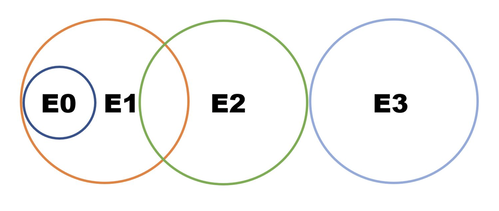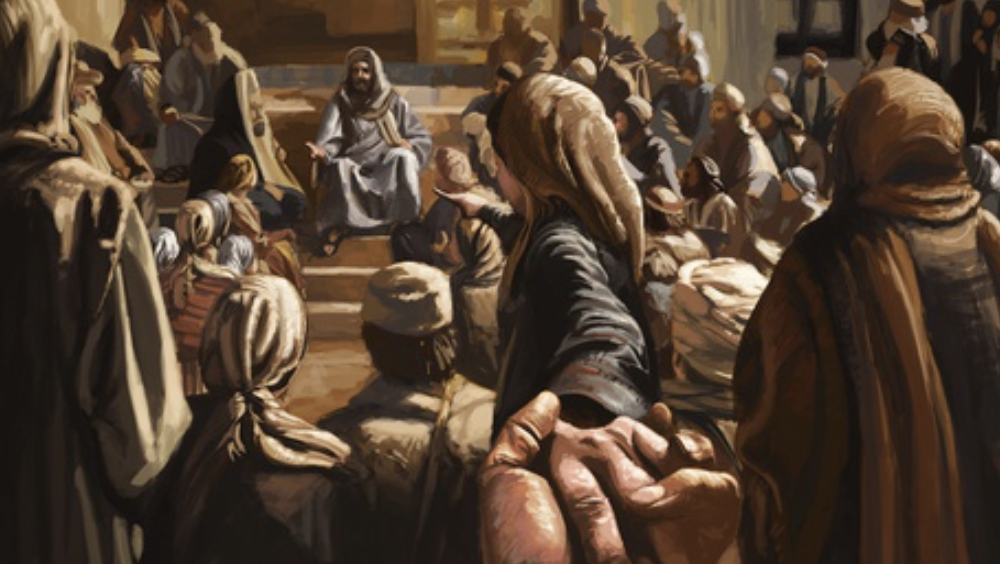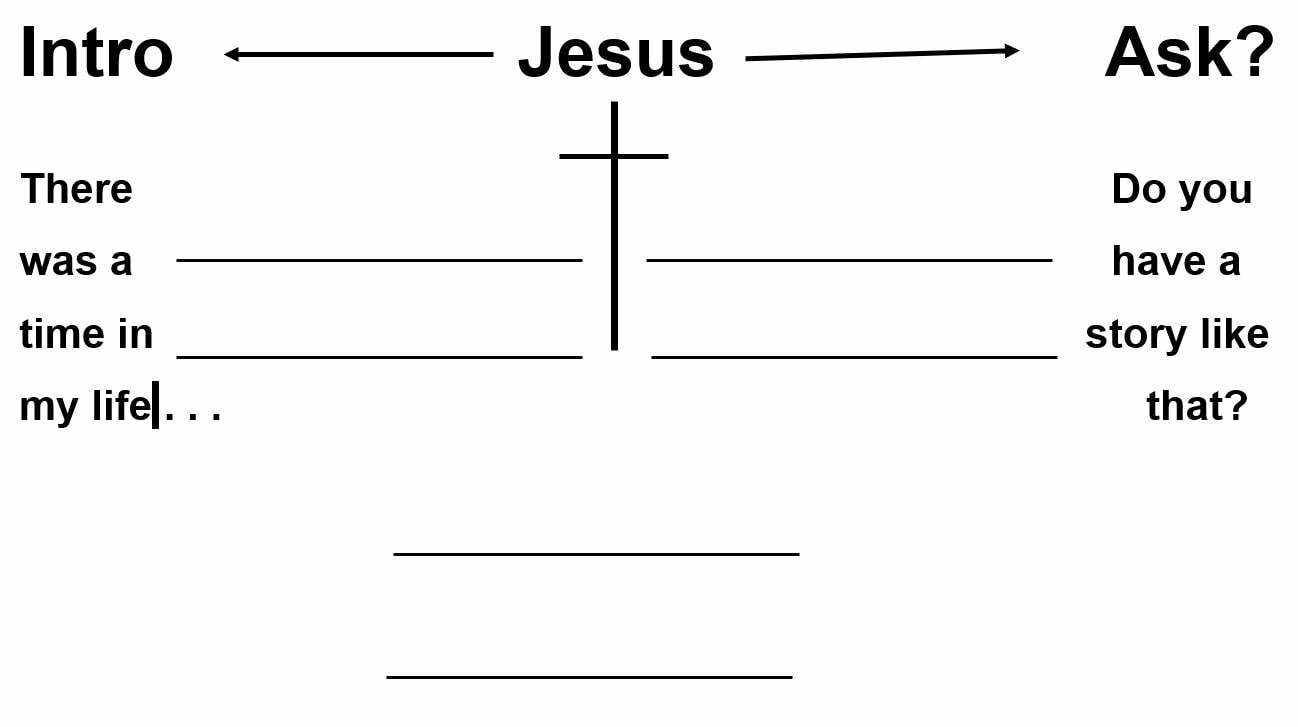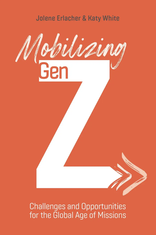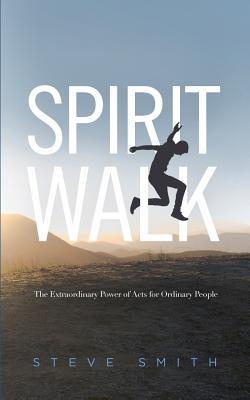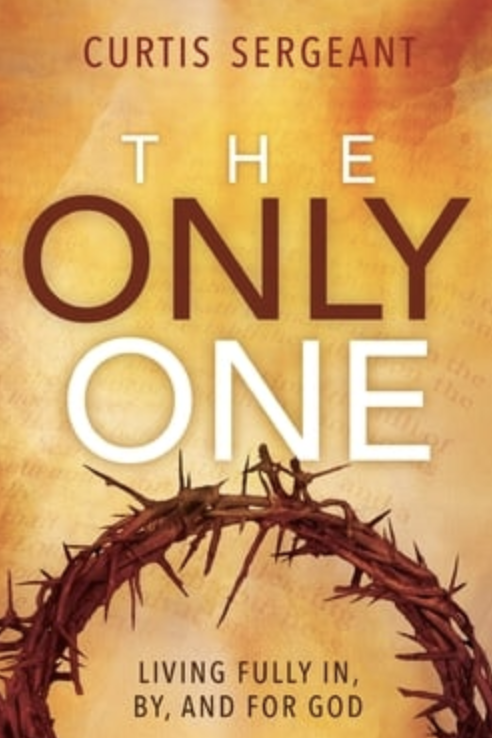“It breaks my heart to see friends step away from the faith, but I know that they will not be dragged back forcefully, so I just try to love them and show my faith through my action toward them.” I don’t want to pick on Gen Z here - this is a sentiment that I hear from every generation. Inevitable, Francis of Assisi will be misquoted, “Preach the gospel at all times. If necessary, use words.” It’s an interesting misattribution seeing that Francis is recorded as preaching sermons not only to people, but to the birds and animals as well. It creates a false dichotomy, pitting one aspect of the Christian work of sharing the gospel with another. It’s never words versus deeds. It is always words and deeds. It is an interesting idea to consider though - the idea that if we just love really well and serve others well, those people will want to know about our faith in Christ. But here is a question to ask yourself: Do you have friends who are not Christians? Are they Atheists, Muslims, Hindus or others? Are some of them not loving, helpful people? The type of people who would give you the shirt off their back if you needed it? I have lots of friends like that - some much more service minded than I am - and never once have I thought to myself, “Man, they are really nice. I think I want to learn more about their beliefs about God and maybe become whatever faith they are.” Why do we think our friends will respond any differently? Being nice is not the gospel, it’s part of being human. Everyone can do it and does. When we look back at Jesus and the apostles, at the early church, at Francis of Assisi, they weren’t just nice, helpful people. They were recklessly generous with their money and time and words. Jesus’ three years of ministry were filled with the disruption of broken and sinful people barging into his day with requests for healing and help. He doesn’t seem to have been good at setting healthy boundaries. The first Christians regularly sold their possessions to give to the poor, cared for the sick when others dumped them in the streets and reconciled Jew and Greek, slave and free, male and female into one body, the Body of Christ. Read any good biography of St. Francis and you’ll quickly realize that he wasn’t just nice and helpful - he was bonkers for Christ and gave everything, in word and in deed, to serve his King. Michael Frost, in his book “Surprise the World” suggests that the kind of life that actually catches people’s attention is what he calls ‘questionable lives’. These are the lives of Jesus and the apostles, the first century believers and believers, like Francis, all through history. Frost suggests that “our challenge is to find what similarly questionable lives look like in the twenty-first century.” So, as we interact with those who don’t believe, if we are going to “just try to love them and show our faith through our actions toward them” we may need to pray about what it looks like to have our love and actions become questionable in their eyes. Being a normal, good person is not enough. Yes, we should serve others through our love and actions, but Paul tells us that “faith comes from what is heard, and what is heard comes through the message about Christ” (Romans 10:17). He later shares in 1 Corinthians 3:6-7 that, “I planted, Apollos watered, but God gave the growth. So, then, neither the one who plants nor the one who waters is anything, but only God who gives the growth.” God will do the work but he uses our words as the kindling to start the fires of conversion. This is the example of the Bible. Jesus, and the disciples who followed him down through the ages, all did good deeds for others but they always spoke. They preached. They called people to repentance and to the truth that Jesus is King of Kings and Lord of Lords, the ultimate reality in the cosmos and the only true way to eternal life. If we are hesitant to share the gospel, we may want to reflect on whether that hesitancy comes from our discipleship under the word of God or if it’s more a reflection of our culture. The reality is that even talking about sharing our faith as a two part process of words and deeds would probably be a foreign concept to the disciples and early Christians and people like Francis. Jesus saved our whole life and our whole life serves him. So of course we should serve and love and help others. Because Christ lives in us we can do nothing but be the most service orientated and loving and helpful people around. And of course we should take every opportunity to share the good news of Christ - whether we know a person or not, whether we’ve loved and served them or not. Their eternal destiny depends on the seed of the gospel being planted in their heart and that won’t happen if no one shares with them. The number one complaint I hear from former Muslims who came to faith after moving to America is, “Why didn’t anyone tell me sooner?” So as you consider how to live out the fullness of a word and deed gospel message, I’ll end with this – whatever you do, in word or in deed, do everything in the name of the Lord Jesus, giving thanks to God the Father through him (Col. 3:17). If you found this article helpful, share it with others.
0 Comments
It was several years ago that I wrote about a ministry tool called the E-Scale. Used mostly in cross-cultural contexts, “The E-Scale helps compare the cultural distances that Christians need to move in order to communicate the gospel with others. E-0 refers to evangelism of church-going Christians. E-1 extends to the very same culture through one barrier, that of “church culture.” E-2 evangelism presses into a close, but still different, culture. E-3 evangelism pushes to very different cultures.”(1) The basic idea is that the closer a person is culturally to the people they are trying to reach, the fewer the barriers there are to overcome. Sharing with an old high school friend has few barriers for communication. Moving to a Central Asian village presents a profusion of barriers to overcome; language will need to be mastered, worldview will need to be understood, customs, history, and more will need to be learned and applied to the sharing of the gospel. The relative cultural distance in this setting is immense compared to talking with an old high school buddy. On the E-scale, a high school friend is E1 where new acquaintances in Central Asia are an E-3. Missiologists and missionaries alike have discovered the importance of partnering well with national churches and near culture churches in seeing the Gospel introduced into frontier mission fields. Investing deeply in the discipleship of believers who already know the language or who grew up in a culture that was more similar to the target people group than the western missionaries then becomes an important strategic work in frontier missions by reducing barriers to communication. Some have called this “near-culture missions” which The East West Center for Missions Research and Development defines as “reaching unreached people groups through sending missionaries from geographically, culturally, and linguistically proximate people groups. This has also been referred to as proximate missions.”(2) The more we can harness the innate skills and gifts of local believers to share the gospel the more often the gospel will be shared clearly and understandably. Near-culture missions is an important strategic opportunity that the global church has been embracing. Reading a new book, Mobilizing Gen Z: Challenges and Opportunities for the Global Age of Missions by Jolene Erlacher and Katy White, I’ve begun to re-evaluate what it means to be ‘near-culture.(3)” It started with a statement from a training document for Steiger International, a ministry focused on reaching urban youth around the world.(4) The current urban generation, connected by consumerism, social media and the entertainment industry, forms the largest global culture to ever exist. It spans the globe, sharing the same values, listening to the same music, watching the same movies and sharing the same posts. This global culture is largely influenced by one predominant worldview: Secular Humanism—God is irrelevant and man is at the center. In this relativistic culture, we are god and consumerism is our religion. Many have called Gen Z digital natives. Born between 1995 and 2010, the first of Gen Z were twelve years old when the iPhone was introduced in 2007. As a generation, most did not choose to have smartphones, their parents simply bought them for them. Embracing them fully however, they have come and are coming through their teenage years with 24/7 access to the internet and social media. While the mental health results of this has been nothing short of devastating,(5) it is clear that they are more connected globally than any previous generation. It has been said that a ten year old in Omaha could very well have as much in common with a ten year old in Rome or Rio or Riyadh than with their own grandparents. And so if it is true that Gen Z is the largest global culture to ever exist, then Erlacher and White are on to something important when they say, “Given the trends in shared perspectives and values of young people across cultures, Generation Z possesses a unique opportunity. An understanding of generational views in one cultural context may equip them to engage young people more effectively in other contexts.” Could Gen Z Christians be near-culture missionaries to Gen Z Muslims, Hindus, Buddhist and atheist Chinese around the world? I’m not sure they are waiting to find out. Last year I had a zoom call with a fifteen year old in Dallas who was leading discovery Bible studies with teens from different religious backgrounds from all across the globe on Discord, a social media platform used by the online gamer community. My daughter is connected with friends in France, Turkey and the UAE. No one mobilized them to go, they were already there. For all the challenges that Gen Z faces, I am excited to see where they will lead us in the work of completing the great commission. We certainly need to continue to focus on equipping near-culture Christians living inside the 10/40 window, but might it be that Gen Z believers who are already connected with Gen Z friends inside the unreached nations of the earth will be the next powerful force in kingdom expansion. Perhaps we need to focus less on getting them to go as we went, and rather on developing disciples who love God and love others and have a heart for making disciples wherever they are . . . because for many, they are already there. 1. Missionary statesman Ralph Winter and Bruce Koch wrote “Finishing the Task: The Unreached Peoples Challenge” in which they shared the idea of the E-Scale and how to apply it to missionary strategy. This was published in an eleven page article in the Winter 2002 issue of the International Journal of Frontier Missions.
2. THE BRIDGES OF GOD: Exploring the Strategic Significance of Near-Cultural Mission. This is an extensive article written by David Bogosian filled with clear definitions and examples from both the Bible and modern day missions efforts. Accessed Nov. 22, 2023 (http://ewcenter.org/?p=8786). 3. Erlacher, Jolene; White, Katy. Mobilizing Gen Z : Challenges and Opportunities for the Global Age of Missions. William Carey Publishing. Kindle Edition. 4. Steiger International website, “Is There More?,” downloadable PDF, 9. 5. It is beyond argument that giving pre-teens and teens smart phones and social media right as they are navigating what we all know as the most difficult time of our lives - junior high - has had devastating results on the mental health and overall quality of life for Gen Z. Jonathan Haidt writes about these issues at his Substack, After Babel. See also the Varkey Foundations global study of the general health and well being of Gen Z. Through over 20,000 surveys from 20 different countries there is a wealth of information in their report which you can read HERE. In the first few chapters of John an interesting pattern emerges. The numbers of those following Jesus begins to grow as his followers simply invite their friends, family or, in the case of the woman at the well, entire village to "come and see."
To be sure, none of those activities are wrong and God uses all of them to help people come to faith - they are simply not the example of Jesus' first followers in the first four chapters of John (John 1:39; 1:41-42; 1:45-46; 4:28-30). For them, "come and see" was enough. It seems they knew that if they could just get their friend to spend some time with Jesus - even a cynic like Nathanael - that would be enough. And Jesus is still enough today. Like his first followers, we can ask our friends to come and see Jesus by sharing the stories of Jesus from the gospels and by inviting them to read these stories. We can do this by inviting them read through one of the gospels with us or we can invite them to into a discovery Bible study using one of several story sets:
My default has been to invite people to church or to open up deep philosophical conversations with my far from God friends. God has of course used both of these tactics, but increasingly I'm learning (and trying to learn) to default to simply asking them to come and see Jesus for themselves by inviting them to read the gospels with me. How about you? How have you been inviting people to Jesus lately? Did you find this post helpful? Share it with a friend. If you have had the opportunity to listen to more than a few testimonies of people who were raised in lostness and came to faith, you have probably started to notice a couple of themes. One of those themes is the importance of a follower of Christ in their life. They met a Christian who through word or deed or both had an impact on their journey toward faith. Another that often comes up is the power of the word of God to bring conviction and give hope. In reading the Bible, they met a God who loved them enough to send his one an only son to save them from their sin, from fear and shame and from death.
In the scriptures, they met the living God. With this article, I want to provide tools to help you help your friends begin to explore the Bible and learn from the scriptures themselves. The Bible is both the greatest evangelistic tool that we have as well as the foundation for disciple making. Story Sets are apowerful tool to help your friends read the Bible. Story Sets A story set is a set of Bible stories that focus on a particular topic or theme. These can be used as a basis for exploring the Bible with your friend. Story sets are most often narrative in nature which allows pre-believers to enter into the story of the Bible and into discussion with you around the character and will of God. The purpose of story sets is to get people quickly into the scriptures, and to begin to teach them how to read the word of God. How To Use Story Sets As you connect with people who are far from God or if you are working with new believers, it will be natural to talk about the things that are important to our lives. There will be events in life that you will want to celebrate with your friends. There will be challenges in life that come up for which your friends will be looking for guidance. You will find yourself talking about the bigger questions of the meaning of life and the nature of God. Story sets give us a framework for introducing the word of God into these discussions. For example, let's say you are having a conversation with a young mother and she says, “I got into parenting before I was ready. Other people make it sound so easy. My mother just laughs. My grandmother says everything will be okay. But I’m trying to raise my kids without a map. Please help.” You could respond, “I’ve found a lot of guidance for parenting in the word of God. I’ve been so thankful that God gives us examples of parenting in the Bible. I wonder if you would like to read some of these stories together and see what we can learn from them.” You could then find or create a story set and read through a story each time you meet. Here is an example of a "New Parent" story set:
This particular story set finishes out by pointing not just to some good examples and lessons for parents, but with the story of Abraham and then the return of the prodigal son. Like this one, most story sets are evangelistic in nature, giving guidance for life while also pointing to Christ. One of the most commonly read story sets in the Muslim, Hindu and Buddhist world is Creation to Christ, a collection of stories, starting in Genesis, that give a general overview of the story of the whole Bible. Choosing The Right Stories How do we know which story set is the right story set to read with each of my friends? This is a discernment process that begins with prayer. Pray often for the opportunity to read the Bible with your friend. Pray for wisdom to know what stories in the Bible are the ones that will meet the felt needs of our friends and meet them where they are at. Choosing a story set also involves good listening. If we care about our friends, then we will be asking about their lives and as we get to know them, we’ll begin to hear the issues with which they are struggling. Then we can create or find an appropriate collection of Bible stories for their particular need. How To Read The Stories Isaiah 55:11 says, “When my word goes forth, it shall not return empty or void, but will accomplish the thing for which I sent it.” This is an amazing promise and it encapsulates why it is so important that we help our friends begin to read the scriptures. God will do the work! A process to read the Bible that missionaries around the world are finding to be fruitful is the Discovery Bible Study. It is a simple process that allows the Word of God and the Holy Spirit to be the main teachers. You don’t have to have all the answers but can trust that as you read the Bible with your friends, the Holy Spirit will guide them. It also begins the disciple making journey even before they come to faith as you model with them how to read the word of God and apply its teachings to your lives. [Learn more about Discovery Bible Study] The Discovery Process 1. Before you jump into the Bible story, be sure and spend some time connecting with your friend. How are they doing? How are their father and mother doing? How is work going? Spend time being with them. Don’t neglect this opportunity to extend hospitality. Share the week's highs and lows with one another. 2. Next turn to the passage. Read the passage aloud with your friend. Re-read it 3-4 times. Really! Re-reading helps ensure that they are actually getting into the passage. 3. Work together to retell the story in your own words. Don’t explain or interpret. Just retell the story. This provides an opportunity to make sure they are understanding the story and creates an opportunity to hear the story one more time. It also gives you and your friend practice in telling others the story. We want to be able to go home and say to a friend or family member, "Let me tell you the story I learned today." If in the process of your discussion your friend says something that is obviously not in the story, just ask the simple question, “Where do you see that in the passage?” 4. Next begin to discuss the following discovery questions:
5. Work together to think about what you can do this week to apply what you have learned in the passage. It can be helpful to actually write down an “I will . . . “ statement. 6. Spend time thinking about other people in your life who you could tell the story to this week. Ask, “Who can you tell this story to this week?” 7. Last question -- When can we meet again? Set a time to connect again and to read the next passage in the story set. Story Set Collection The following story sets are for you to use with your friends. Most are story sets that others have created and we have collected to share with you here. These should give you an idea of how you could create your own story sets to respond to the felt needs of your friends or disciples. 54 Trial DBS Series The parenting story set above comes from this great resource. I'd originally seen this collection of stories on a website which is no longer active. Thankfully my friend Chuck sent me a copy he received from a friend who was connected with Jerry Trousdale. This is a collection of 54 stores divided into nine major categories with six sets of six stories each. It is a really amazing resource. You can access this story set HERE. Creation to Christ - Long Version Beginning with Genesis, this study examines how God's plan of redemption unfolds throughout the Old Testament. It leaves the reader expectant for the fulfillment of the many prophecies found throughout the scripture. You can access this story set HERE. Creation to Christ - Short Version A modified, shorter version of the original Creation to Christ set. You can access this story set HERE. Stories of Hope A series of seven stories that introduce the reader to Jesus. You can access this story set HERE. Signs of John A series of seven stories that introduce the reader to Jesus. You can access this story set HERE. Learning to Follow Jesus A series of stories that allow you to disciple a new believer into the basics of following Christ. You can access this story set HERE. Other Story Set Resources
When Jesus told his disciples in Luke 10:2 that the harvest is plentiful but the workers are few he was making a statement of fact. His encouragement was to pray for more harvesters and when he later delivered the great commission in Matthew 28, the marching orders for followers of Christ and his church became clear: Jesus came to seek and save the lost and his plan to accomplish the task was built on the development of disciples who make disciples. Out of this disciple making milieu churches naturally form. God gets the glory and the kingdom of Jesus expands. The simple creed, to know God and make him known, stands as a summary of the message of the Bible and the life purpose of any Christian. As we cast our gaze back through church history we see the story of a church stumbling forward in this endeavor, sometimes embracing it wholeheartedly, sometimes distracted and faltering, sometimes accomplishing it through the divine push of the Spirit of God. The very first generation of Christians was laser focused on making disciples. They proclaimed the gospel boldly and God added to their numbers steadily (Acts 2:41, 47; 5:14, 42; 6:7). Outside of Philip however, few ventured beyond the walls of Jerusalem. And then, with the martyrdom of Stephen, God seems to have given His church a divine push and a ragtag collection of relatively new Christians soon scattered across the refugee road and “preached the word wherever they went” (Acts 8:4). The church, a family of ordinary, unschooled men and women living on the fringe of society, turned the Roman world upside down. Each successive generation has had to discover their own role in obeying the great commission. At times the church has remained true to the core missionary task and at other times the church has turned inward, succumbed to the distracting lure of political power or simply capitulated to the ways of the world. Always there was a remnant and that remnant continued to follow Jesus into the harvest among those who had not yet heard. As the world grew and changed, the church adapted with it. New technologies and innovations opened up new opportunities to carry the gospel forward. The printing press allowed for the mass printing of Bibles and gospel tracts. The steam engine carried missionaries further, faster. The radio opened up the door to broadcasting the good news into the places Christian workers weren’t allowed. Missiologist Doug Birdsall observed that, “The Great Commission is for every church in every culture in every generation. There are no exclusions. But . . . every church in every culture in every generation must determine the way in which they respond to this responsibility -- in a way that is appropriate to time and context.” Philip the Evangelist thought about his role in completing the great commission in completely different ways than Hudson Taylor did 1800 years later when he boarded a ship to China. And when Jim Elliot and Nate Saint dropped a bucket on a string out of a circling plane over the Amazon jungle they too innovated in order to take the gospel forward. Today our world has changed in extraordinary ways. Globalization has led to the migrations of people across the globe in unprecedented numbers and now people groups once hidden in far away lands are living down the street. Technology has opened up doors of communication that never before existed. Where the printing press gave rise to the gospel tract, the internet has opened doors to place gospel messages on the smartphones in the hands of men and women who have never met a follower of Christ. We can all agree that the Internet is a double edged sword carrying in its networks unimaginable power for both good and evil. And yet our redeemer God has led His church to utilize this new technology for His glory and the expansion of His kingdom. Mission agencies around the world are using social media marketing tools in order to connect with the hidden seekers scattered throughout every region, people group and religion. One group serving in a Muslim majority country saw all in person connections shut down because of Covid in early 2020. After catching their breath and mourning the loss of ministry as they knew it, they began to run Facebook ads throughout the region. Within a few months they had engaged in more gospel conversations and seen more people come to faith than in the previous years they’d been in the country. Two young teenage girls who had been secret believers for over a year responded to one of those ads and for the first time were connected with other followers of Christ. But it’s not only missionaries and professionals who are able to do this kind of work. Today, with a little coaching and some simple training, any follower of Christ with an Internet connection can begin building relationships with the unreached in the Muslim, Hindu, Buddhist and tribal worlds – the church unleashed into the global harvest, partnering in the great commission as never before, being the answer to Jesus’ prayer for more harvesters. A retired teacher in a small town in the Midwest heard about Crescent Project and the Embassy ministry and was soon connecting with English teachers through a Facebook group for teachers in the Middle East. She now regularly texts and calls with a handful of new friends - all of them are Muslim. She is the first true Christian any of them has met and she is praying for them daily, sharing regular testimonies of God’s faithfulness and, with two of these dear teachers, they have begun reading the Bible together. A college student in London was watching a live soccer match on Youtube when he noticed that many of the people adding comments on the live chat were Hindi names. He began to interact and was able to connect with two new Hindu friends from East Asia - in a live chat on Youtube while watching a soccer match. Who knows where God will lead these young men as they begin to ask questions and hear about the good news from a twenty year old Brit. Another Embassy volunteer was pleasantly surprised to find out that the young Iranian woman with whom she’d connected on a language learning app had recently become a Christian. A sister in Christ from Brazil had already been connecting with her, shared the gospel and led her to faith. In what the Embassy volunteer would say was one of the most powerful zoom calls of her life, these three sisters gathered together to share testimonies, read the Bible, worship and pray together. God is on the move. He has always been on the move and has never missed an opportunity to redeem new technologies and innovations. Over 5 billion people in the world, if asked today, would say that they are not a Christian. 3.3 billion of those are a part of unreached people groups, ethnic groups without an indigenous, self-propagating Christian church. Many of them have never met a follower of Christ, have never read a Bible and have never been in a church. We must continue to raise up and send missionaries into these least reached regions of our planet - we must do so and we must send more. But for those of us who are not going, we too can be a part of Christ’s harvest force. It will take a tenacious curiosity and teamwork and the expertise of those among us familiar with these new technologies. More than anything, like always, we’ll need to be faithful. Faithful like the two dear sisters who are vision impaired who have joined the Embassy team. Faithful like the many seventy and eighty year olds and the university students who are reaching out online and meeting Muslims. They too are a part of the Embassy ministry. At Crescent Project, we would love to give you the training and the onramps to begin to reach out, connect with and share the love of Jesus with Muslims. There are other great organizations who can help you get started as well. The harvest is plentiful but the workers are few - join with me in praying for the Lord of the Harvest to send workers into those harvest fields. Organizations that can help you get started reaching out online: Did Jesus give the Apostle Paul a strategy for reaching the nations? Yes, he did and it is a strategy for our day as well. Steve Addison often quips that we need to stop asking 'What would Jesus do?' and start asking another question: What did Jesus do? Luke 10:1-23 offers us a window into one of the things Jesus did and it is a window into both his methods of discipling his followers as well as a strategy he uses to reach into new areas with the gospel. It is a strategy that the Apostle Paul employs throughout his ministry and is especially visible on his second missionary journey as recorded in Acts chapters 16 - 18. This is of course not the only strategy that Jesus gives his followers nor is it the only strategy for reaching into new harvest fields that the Apostle Paul uses, but within Luke 10 are a number of examples and principles that we, like Paul, would do well to pay attention to and at the very least, try out. They are not the way we in the west usually go about things but they are the way that Jesus taught his first followers to take the gospel into new regions. Let's look at a few of the examples and principles from Luke 10. Pray for Harvesters In Luke 10:2 Jesus tells the 72 to pray for more workers. This is interesting because as sent ones, they are the workers. The implication seems to be that there are workers in the harvest! As Paul worked through Macedonia and Greece, the leaders of all of the churches that emerge in Acts 16 - 18 are new believers who came out of the harvest. Paul did not lead these churches. There is no mention of him even planting churches. Paul made disciples (Matthew 28:18-20) and churches emerged as new disciples were raised up and began to share the gospel and make disciples. Find the Person of Peace Jesus instructs the 72 to find a peaceful person, someone who welcomes them into their home. He gives them further instruction that, if a peaceful person cannot be found, they should brush the dust off of their feet and move on. It seems that there will be a God prepared person who welcomes them, or their won't be. The presence of that person or lack their of is out of their hands. It is a work of the Father who draws people to Jesus. Paul trusts Jesus' strategy. For Paul it looks like this: Enter a new town or context. Find the place where people gather - usually a synagogue. Preach the Gospel. Get kicked out. Discover that there are a handful of people who want to follow Jesus. When Paul proclaims the gospel there are always three responses as clearly articulated in Athens in Acts 17:32-33. When they heard about the resurrection of the dead, some of them sneered, but others said, “We want to hear you again on this subject.” At that, Paul left the Council. Some of the people became followers of Paul and believed. Paul knew that there would be three response:
Stay with the Person of Peace As part of Jesus' instructions, he also tells the 72 to not move around from house to house but rather to stay with the person of peace. Jesus does not tell us why we should stay, but in the example of Paul we see the fruit of staying in place. Paul is not the local who will establish the movement in each town. The local person - the cultural insider - will be the one to stay. Lydia, the Philippian Jailer, Jason in Thessalonica, the elders in Berea, Dionysius and Damaris in Athens, Aquilla and Priscilla in Corinth as well as Crispus the synagogue ruler and his entire household! These are the people who become the leaders of the gospel movements in each of their respective regions. Paul has stayed with them, he's shared meals with them and invested in raising them up to be disciples of Jesus! This is perhaps most clearly seen in Thessolonica where Paul spent just three Sabbaths [learn more]. Everywhere Paul goes he finds a person of peace, a God prepared person whom God is going to use to establish the local expression of faith. Paul has no plan to leave a “church planter” behind to lead the new church for a time. It seems that from the very beginning the plan is to have a new believer lead the church. These are just three of the principles from Luke 10 that Paul applies as he works to obey Jesus and make disciples. A deeper study of the sending out of the 12 in Luke 9, Matthew 10 and Mark 6 would be be helpful to further compare how Paul took the example of Jesus and applied it to his efforts to take the gospel to the very ends of the earth. If Jesus' example and the principles of Luke 10 were good enough for Paul, it seems we ought to at least look at these passages and explore what applying them to our current context might look like. A sermon given at Hillsboro Mennonite Brethren Church on the strategies and disciple making process of Jesus in Luke 10:1-24.
This week I'll be co-teaching a workshop on refugee outreach at Crescent Project's National Conference. My colleague James will begin that workshop with a short devotional from Luke chapter 7 where Jesus is asked to heal a centurion's servant. It's a story that has caused me a fare amount of conviction the past few weeks as I've meditated on it. I'll hope it does the same for you. Jesus has just finished teaching the masses when a group of elders from the Jewish synagogue show up to ask him to come and heal a Roman centurion's servant who has fallen ill. Roman centurion's were the senior officers of a legion of Roman soldiers. Roman soldiers who are occupying Israel. Roman soldiers who have brutalized and oppressed the Jewish people. Already this story is a bit crazy. But when these elders get to Jesus they don't just ask, they plead with Jesus saying, "He is worthy for You to do this for him, for he loves our nation, and he is the one who built us our synagogue." Jesus goes with these elders and the story ends with the centurion telling Jesus he doesn't need to come, he just needs to say the word. The centurion understands authority and Jesus famously praises the man saying, "I tell you, not even in Israel have I found such faith." This is the part that is most often the focus of the story but let's go back to the request of the Jewish elders. In every respect, the Roman occupation has been a terrible blight on the Jews in Israel. And yet here are the oppressed pleading the case of a man who is supposed to be their enemy. Why? Because he loves them. He has poured out his love in generosity. He has lived a life among them that has demonstrated extraordinary love. And the question James challenges us with is this: Is your church living in such a way with the refugee and immigrant communities in your context that if the government came to shut your church down, would refugees and immigrants be the first ones to come and plead your case? Would refugees in your community come out saying, "No, you can't shut this church down! They've loved us. They've helped us with extravagant generosity." Do our churches have a centurion's reputation? Crescent Project is LIVE STREAMING all main sessions! FREE!
THEME: Uncharted: Boldly Following Jesus
Register for FREE TODAY and claim your access! Here's the process:
Daily sessions times begin:
Gather some friends and join us! In John 4, Jesus talks with a Samaritan woman at well outside of her town. During this interaction, the woman begins to suspect and even believe that Jesus might be the prophesied messiah. Leaving her water jugs, she rushes back to her community where she proclaims, “Come see a man who told me everything I did. Could he be the messiah?” We don’t know a lot about this woman, but the result of this simple statement is that the people of her villiage come out to see Jesus for themselves and many believed. Jesus spends two unplanned days with the townsfolk who end by saying, “We no longer believe just because of what you [the woman] said; now we have heard for ourselves, and we know that this man really is the Savior of the world.” [read the story here] We have learned to use this story as a teaching tool at our E2E training events. It answers a few questions to help us share the gospel:
The woman goes back to her community; her friends and family and acquaintances. This is her relational network. And our own relation networks are who we can begin to share with and for whom we should be praying regularly [Read: Personal Prayer Strategy]. The woman shares two things. The first is a one sentence summary of her story. The second is a question pointing to the gospel. Those are two ways we see the good news shared in the New Testament: personal testimony and gospel presentation. These are what we can share. And when does the woman begin to share? After her seminary training? After her confirmation class or new members class? No. The woman begins sharing immediately! She has discovered good news and she will not be stopped. With today’s article we want to look at that middle question: What do we share? We’ve previously written about a helpful tool for sharing the gospel called The Three Circles. There are a lot of great gospel sharing tools, but this is one we train people to use at E2E events. We also train everyone how to share their story in 15 seconds. This is just a smidge longer than the Samaritan woman’s testimony but the purpose is the same: to invite people to learn more about Jesus. This is something we’ve learned from the No Place Left coalition. We use the diagram below as a teaching tool to help shape our 15 second testimonies. There is also a great training video that I’d encourage you to watch both to craft your own 15 second testimony but also to have as a tool to train others. We aren't using the 15 second testimony to explain the fullness of the gospel. We use it to open up spiritual conversations that give us a chance to hear someone’s story and to invite them to come and discover Jesus for themselves. [Read an example of how this was shared] Crafting Your 15 Second Testimony
Watch the video below and allow Troy Cooper to train you to share your 15 Second Testimony. Your Assignment
It was noon and I was meeting my new friend Musa* for an hour over my lunch break. We’d decided to meet at our favorite coffee shops to connect. I’d first met Musa when he had reached out looking for someone to practice his English with. He’d had a lifetime of classroom instruction in his home of Cairo, Egypt* but had few native English speakers with whom he could practice. The first time we met we covered the bases of getting to know one another. Where are you from? What is your family like? What do you like to do in your free time? The sounds of Arabic were all around him in the busy Cairo coffee shop where he sat. I then asked Musa what he did for a living. He is a young guy, in his early twenties and had just gotten started working as a mobile phone app developer. Then he returned the favor and asked me what I do. I’m in full time ministry so this is always an interesting question to answer. But I dove in. "I help people in churches in America understand and follow Jesus. That is pretty broad but it involves teaching, training, coaching, encouraging and casting vision with leaders and regular people. I'm not going to get rich, but I do find tremendous fulfillment in doing the things that I believe that God has made me to do. I bet that sounds a little crazy, but that's what I do and really it's who I am." I could tell He didn’t completely understand what I was talking about so he asked a few more questions but then moved on, wondering if I’d been to Turkey. He’d recently visited Istanbul and loved the city. I told him of our four and a half years living there and how much we loved the people we knew there. We meandered in and out of topics and then he asked a serious question, “I hope to hear an emotional situation you have been through?” I thought for a few minutes and then told him about a recent struggle I’d been facing and about how our family had spent time praying for God’s wisdom and healing. It was good to be transparent with my new friend even though it felt a bit hard and I wasn’t sure he was following everything. Musa’s English is good but he hasn’t had a lot of experience talking about personal topics. When I was finished, I said, “What about you? Have you been through any hard situations in life?” Musa was contemplating his answer when he looked at his watch. He gave me a wry smile. “I’ll have to tell you next time. I’ve got to go now. But let’s make sure and meet again.” As Musa left, I wondered about our conversation. Had I said too much about what I do? Should have I asked more questions about his faith and beliefs? Should I have offered to pray for him before he left? What if I had said something wrong? I spent some time praying for our time together asking the Lord to use it for his glory and to reveal himself to Musa. And then I removed my headphones and shut down Facebook Messenger on my laptop computer. I got up from my seat in the corner of my coffee shop in South Dakota, grabbed my mug and headed up to the counter for a refill. Though we were half a world away, Musa and I had enjoyed a great cup of coffee and better conversation. We continue to connect regularly, oftentimes just texting back and forth, sometimes hopping on a video chat to say a quick hello and at other times, setting aside an hour to grab a cup of coffee for an extended talk. To my surprise, Musa had quickly moved into questions of faith. I’ve introduced him to Discovery Bible Study and we are slowly working through a creation to Christ story set. We read a passage of scripture - I paste it into Messenger and he reads the Arabic and I read the English. We then ask some simple questions to help us discover what the story says about God, about people and about how we should live our lives. It’s been slow because Musa often brings up his own questions - questions that are stretching me and forcing me to dig into my own faith and theology. We started with his questions about the Christian idea of a triune God. We’re now pressing into the validity of the Bible. And those conversations are packed in between talk of family and culture and food and movies and dreams for life. It’s a whole lot of fun. I am the only true follower of Jesus that Musa knows. I’ve been able to pray for him and continue to pray for him regularly. Musa is one of many young guys that I am connecting with online all across the Muslim world and someday, I hope I will be able to meet all of them in person, if not in this life, then in the eternity of heaven. That is my prayer for each of them. There are 1.7 billion Muslims in the world today and collectively, Christians are sending one missionary into the Muslim world for every 405,000 Muslims.[1] This has to change. John Stott has said, “We must be global Christians with a global vision because our God is a global God.” Because of advances in technology and the globalization of our world, millions of people throughout the Muslim, Hindu, Buddhist, Animistic and un-religious worlds are working to learn English. They are going online to try and find people with whom they can practice speaking. A new door of missionary activity has opened and it is open to everyone who is a follower of Jesus and has an Internet connection. Geography is no longer a barrier to your relationship with a Muslim like Musa. C.T. Studd said, “If Jesus Christ be God and died for me, then no sacrifice can be too great for me to make for Him.” Will you sacrifice an hour a week to invest in a relationship with a young man or woman in the Muslim world who is looking for friendship and someone to practice English with? Let Us Help You
*For security, names and places have been changed. 1 - http://www.thetravelingteam.org/stats |
The E2E Community
Categories
All
Good Books
Archives
April 2024
|
Proudly powered by Weebly



